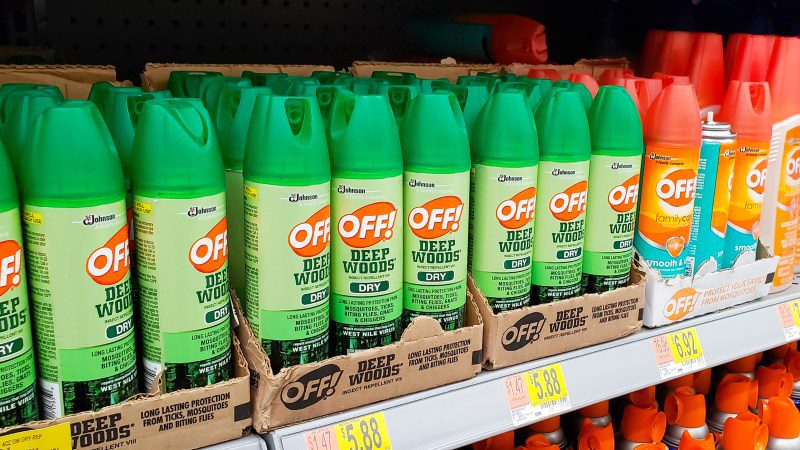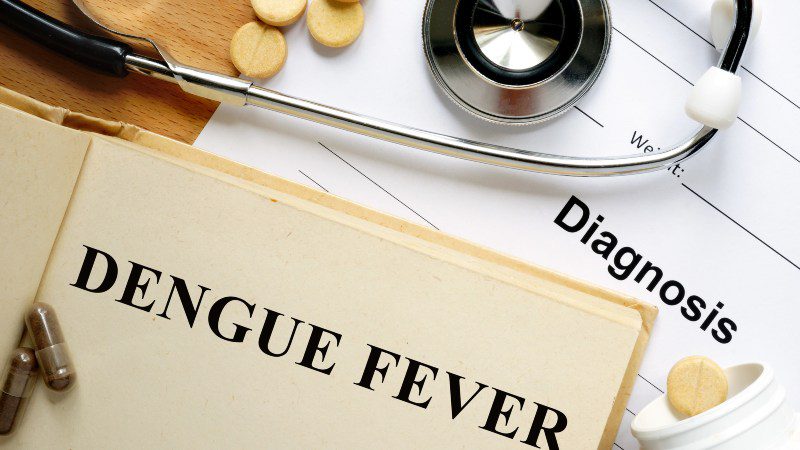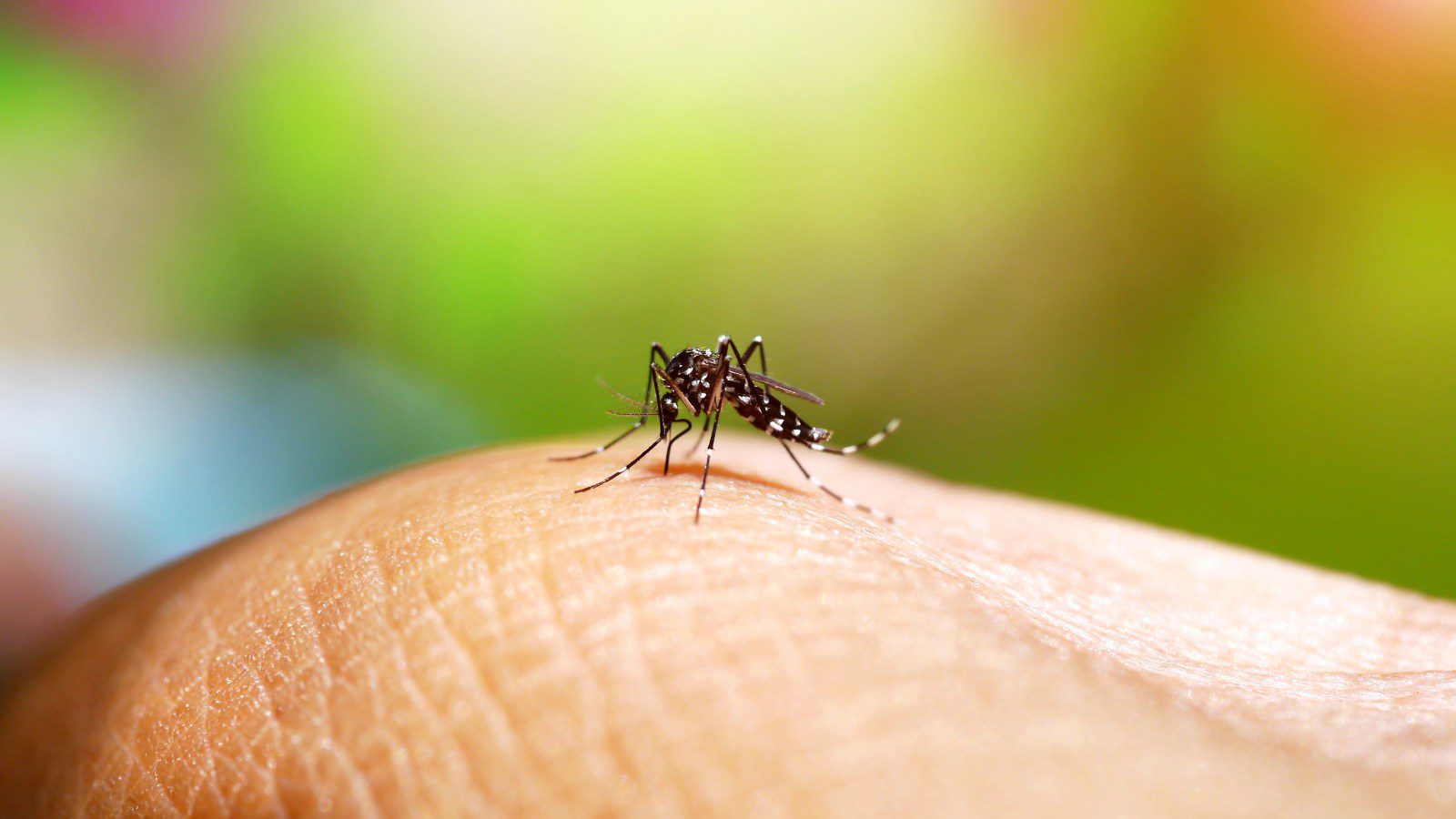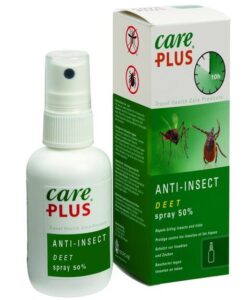One downside to vacationing in the Caribbean is that there are actually always mosquitoes. Some times a little less than others, but they are always there. And some mosquitoes are spreaders of diseases, such as Dengue. What is it and what can you do to minimize the chances of suffering from it?
Last update March 25, 2024. This page is today () still up-to-date.
Dengue
What is Dengue anyway? Dengue is one of the fastest mosquito-borne viruses in the world. Every year, some 400 million people worldwide become infected with Dengue. You are especially at risk in (sub)tropical climates, so be careful if you travel to Asia, Africa, South America or the Caribbean. And thus Curacao also falls into the risk area for Dengue. Want to minimize the risk of Dengue? There is really only one way to do that: make sure you are not/as little as possible bitten by a mosquito that can transmit the virus. Sounds simple, but in practice, unfortunately, sometimes quite difficult.
Which mosquito
There are two types of mosquitoes that can transmit the Dengue virus. The Aedes Aegypti (Yellow Fever Mosquito) and the Aedes Albopictus (Asian Tiger Mosquito). But let that be mostly theoretical knowledge with which you can do little else: when one of those nasty critters buzzes around you, they all look alike and you really can’t recognize very quickly whether this is a “safe” or an “infectious” mosquito. In short: make every effort not to be stung by any mosquito.
Dengue on Curacao
In winter 2023/2024, there is an outbreak of dengue in Curacao. We hereby give you some highlights of the situation:
March 25, 2024
At an information session, the Ministry of Health, Environment and Nature (GMN) announced the following, among other things:
– In recent weeks, some 20 persons have been admitted to the Curaçao Medical Center following a dengue infection. Three of them died.
– The current situation is worrisome, but there is certainly no reason to panic, said epidemiologist Yaskara Halabi.
– GMN recorded 20 cases of dengue infection among tourists.
– Zika and Chikungunya have also recently been spotted in Curacao.
– A new, emerging viral disease is the Oropouche virus. It has not yet been detected on Curacao, but it is expected that Oropouche will also appear on Curacao in the coming period.
source: Caribbean Network, March 26, 2024
Dengue on Curacao
Jan. 31, 2024
Curacao’s GGD confirms an increase in Dengue on Curacao. A few cases were already confirmed in the last weeks of 2023, in January this rose to 31 cases of dengue in Curacao, plus one case of Chikungunya.
The Ministry of Health, Environment and Nature (GMN) is actively conducting campaigns to remove and prevent mosquito breeding sites, but also stresses that the public should actively help in this.
source: Paradise FM, Feb. 1, 2024
Dengue on Curacao
Preventing Dengue
As already reported, preventing dengue (dengue fever) is mainly a matter of avoiding being bitten by an infected mosquito. What helps with this is that the mosquito that can transmit the dengue virus is mostly active during the day and almost never after dark.
Mosquito protection
To protect yourself from mosquitoes, we can give you the following tips:
Wear loose, protective clothing
Mosquitoes can poke through tight clothing quite easily, so, for example, tight long leggings won’t help much. Better put on loose-fitting clothes. Of course, as long as possible: shorts and shirts will offer little protection from mosquitoes.
Use DEET
Apply DEET regularly and properly. Preferably a lotion or spray that is 50% DEET. If the percentage is lower, it won’t help as much and you’ll have to reapply yourself sooner. A higher percentage of DEET than 50% is not necessary: it offers no extra protection, and by doing so you are really just smearing unnecessary extra poison on your skin.
Buy DEET 50% »
Mosquito net
In your bedroom, you can hang a mosquito net to protect you from mosquitoes while you sleep. As already reported, the dengue mosquito is mostly active during the day, but if you want to be on the safe side and not be bothered by any mosquito in bed anyway, a mosquito net is an ideal solution. Bring a travel mosquito net, which is a little easier to hang without having to put screws etc. directly into the ceiling.
Buy Mosquito Net »
Air conditioning
Mosquitoes don’t like cold and wind, so turning on the air conditioner pretty much guarantees a “mosquito-free” night. Be aware that on average an air conditioner on Curacao uses about up to US$ 10 per night in electricity. If you are staying in a smaller accommodation, sometimes at the end of the vacation the electricity consumption is still charged to you. So general tip (apart from the mosquitoes): when you leave the room, turn off the air conditioner.
Anti-mosquito shopping in Curacao
You can also buy items in the supermarket on Curacao that help in the fight against mosquitoes:
– Smoking spirals: you put these on a saucer and light them, then the spiral burns up quietly in about 3 hours. The smoke from this does not please the mosquitoes so they leave. You can smell it a little bit, but that in itself is not bothersome.
– OFF!: One of the popular spray cans of “anti-mosquito stuff” is OFF! OFF! comes in green and orange varieties, the orange variety helps better for most people. Note: this is really toxic stuff though, so don’t use it more/frequently than necessary. But it does work well!
– Mosquito swatter: For a few guilders you can buy a mosquito swatter at a Chinese supermarket along the road. That’s one of those tennis rackets you can beat mosquitoes to death with. When purchasing, check that the batteries are included.


Dengue virus, the course
What is approximately the course of Dengue fever? Step by step:
1- Contamination
Infection can only occur through the bite of a mosquito that is active and infected during the day. Dengue cannot be transmitted from person to person, so if your travel companion has contracted dengue then there is no risk that you will also be infected by him/her.
After the first symptoms of dengue appear, that person is still infectious to mosquitoes for about a week. So if the infected person is stung by a “dengue mosquito” within that period, that mosquito thereby picks up the virus and can again transmit the virus to another person. Once a non-infectious mosquito has picked up the virus from an infected person, it takes another 1 to 2 weeks for that mosquito to become infectious as well. That mosquito then remains so until her death. A mosquito can also transmit the virus to its eggs, allowing the mosquitoes to grow from their eggs into an adult mosquito that is infectious to humans.
2- Incubation period
If you have been bitten by a mosquito carrying the Dengue virus, it can take up to 2 weeks for the first symptoms to appear. But usually you will notice something within 7 days or so.
3- Symptoms and course
First the good news: about 40 to 80 percent of persons infected with the Dengue virus will show no symptoms. So you have it, but get very little, if any, of it. Theoretical addition: there are 4 different types of dengue, but the symptoms are about the same for each type so we will not name that distinction further.
The majority of infected persons will experience mild symptoms of dengue fever as symptoms. Consider here:
- sudden onset of fever (up to 41°C or 106°F) with chills
- headaches (especially behind the eyes)
- muscle and/or joint pain
- Skin rash on the first or second day of illness


This is usually considered non-serious or uncomplicated dengue. If the symptoms remain (very) mild, then at first you probably won’t think of dengue either, but rather a flu or COVID-19. After the first few days of illness, symptoms such as nausea, vomiting, coughing and sore throat are added. As the fever subsides, a (new) rash may appear on the trunk, arms/legs and face. This will persist for about several days to 2 weeks after the mosquito bite.
If after 2 to 5 days the situation worsens (rapidly) including increased bleeding tendencies (including nosebleeds), then severe dengue may be present and can become life-threatening if left untreated. Especially if leads to dengue shock syndrome . Note that the symptoms of severe dengue may present themselves precisely when the fever drops. Severe dengue occurs in about 1 in 20 persons who contract uncomplicated dengue. Signs that may indicate severe dengue:
- severe abdominal pain
- persistent vomiting
- rapid breathing
- bleeding (including nosebleeds or bleeding gums)
- fatigue and restlessness
- blood in stool
Keep in mind that any case of dengue is highly self-limiting and will almost certainly affect travel plans. Studies show that about 40% of those with dengue symptoms are hospitalized.
4- Treatment and recovery
For starters, if dengue is suspected, you should consult a (family) doctor for advice as soon as possible. Furthermore, unfortunately, there is no cure for dengue; it becomes mainly a matter of treating the symptoms and getting out.
1- With symptoms possibly indicating dengue fever, contact a doctor as soon as possible anyway. Do not ignore warning signals!
2- Get tested -in consultation with the doctor- at the hospital
3- Take as much rest as possible and drink plenty of water
4- Stay in touch with a physician about the course
If severe dengue is suspected, you will be hospitalized for treatment.
If you have uncomplicated dengue, you will recover after about a week. Recovery will usually be quick and complete.
Medical assistance
If you suspect that you or your travel partner may be infected with dengue, do not hesitate and contact a doctor as soon as possible. But then again … how do you do that in Curacao?
– Is it really urgent, call 912 for an ambulance
– If you are looking for a family doctor in your area, look here. Please note that the phone numbers listed are local numbers in Curacao. You may still need to enter country code ‘+5999’ before it to call the doctor from your cell phone.
– Curacao has several commercial medical organizations that cater mainly to tourists and expats. In themselves, these are fine doctors, but be aware that they are commercial organizations so everything has to be paid for (usually claimable afterwards with your travel or health insurance). One of these organizations is MedPoint. Note: such organizations are usually not reachable by phone, you have to send them a message via WhatsApp and you will be contacted quickly.
More about mosquitoes
If you want more info about mosquitoes on Curacao and how to avoid them, read the“Mosquitoes on Curacao” page.
The information on this page was created in part by consulting these online resources:
infodengue.nl
Landelijke Coördinatie Infectieziektenbestrijding (website van RIVM)
Disclaimer: GoingToCuracao (NaarCuracao) is not an organization with medical expertise. We try to provide you with relevant information via this page based on externally obtained (online) information, but above all, we recommend contacting a doctor in case of possible symptoms and listening to them for tailored advice. NaarCuracao can in no way be held liable for any consequences of reading, following or applying the information (medical or otherwise) on this page. For advice on a medical condition, you should contact a (family) physician or hospital at all times.


